Losing is something most Commander players experience regularly, and it has proven to be a difficult pill to swallow for many. It can often be the impetus for improving how we play, but it also happens to be something that I’ve seen a lot of players struggle to take responsibility for. While it’s true that at any given Commander table, there can be three other players who were integral in deciding your fate in the game, I think there are a lot of intangible elements along every step of a game that can be examined to help us consider why exactly we lost a game of Commander.
This week, I would like to step away from deck building and really drill down into the aspects of gameplay that I often see contributing to lost games, especially from self reflection. This can range from keeping a poor opening hand, not understanding the threat level of yourself or players around you, all the way down to just simply bad sportsmanship. I do this not to point blame at anybody, but simply as a way to keep myself honest by recognizing my own faults while highlighting a multitude of mistakes that I have bore witness to.
What I don’t want this article to be is a discussion of factors within the game that we do not have control over. This is a casual hobby that uses a very deep card pool. I would not blame somebody for being strategically priced out of cards that have not seen print in over ten years. Players may also not have easy access to card shops to buy cards or play in. And others only have playgroups who wake up everyday and choose violence. But I do think that there are actionable choices that we can focus on to better ourselves and not let losing drag us down.
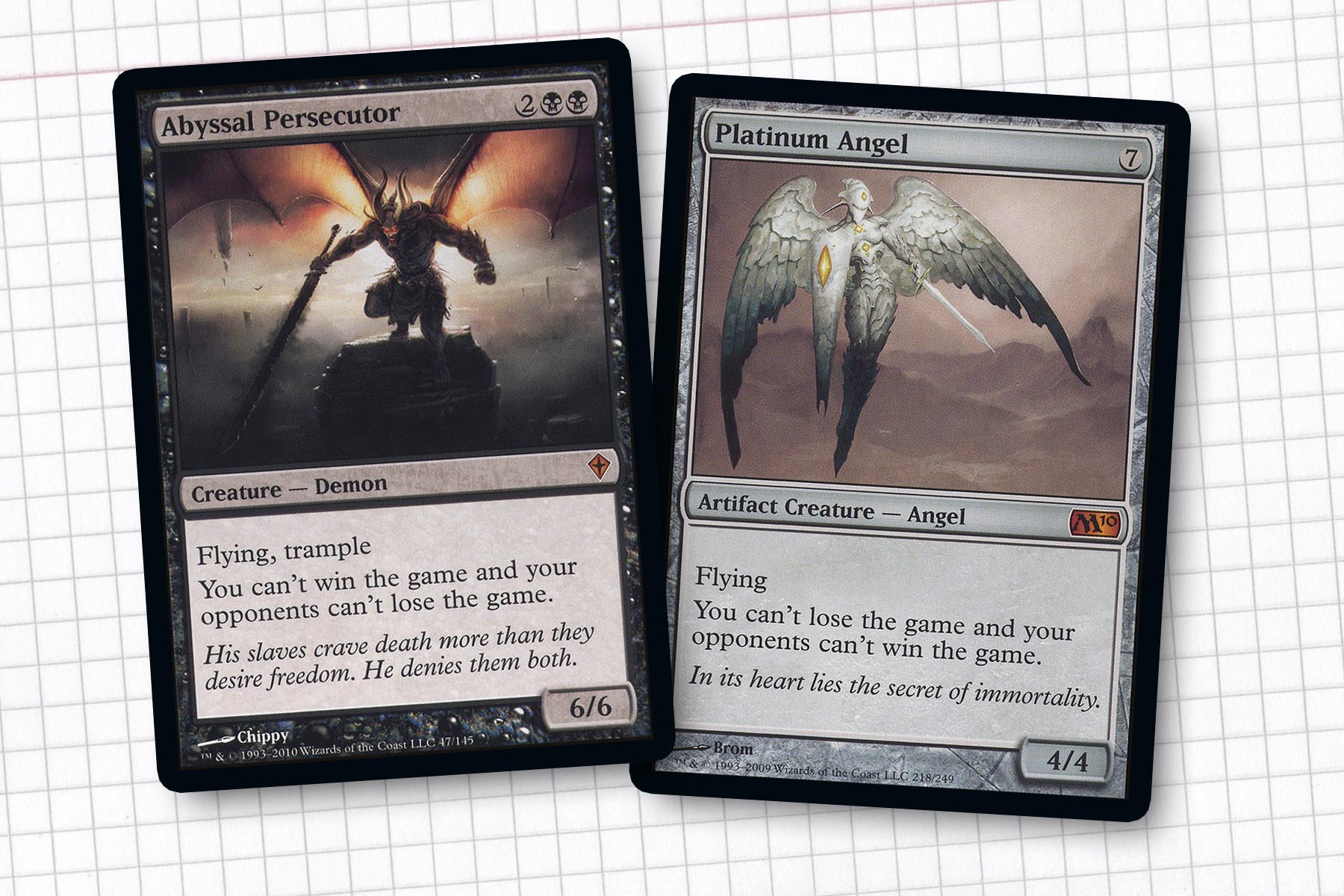
Your Odds of Winning
I respect that players come to win—I do too—but there can only be one winner. In the typical game of Commander you are starting at a base level of winning 25% of the time. I would even be inclined to say that if you are winning more than that, you will probably stop winning: either because your opponents get wise to you or you will move onto a different caliber of playgroup. The glimmer of hope here is that once you accept that you can’t win every game, losing should not feel like such a surprise.
Since casual Magic has been my speed for almost my entire tenure playing the game, my multiplayer outlook created an inverse effect when I played competitive matches. Often, I am over the moon if I go 2-2 at a Friday Night Magic. All this said, I know I have personally also fallen prey to the emotions that can come from narrowly losing a game and taking it poorly, even despite winning the previous game. In fact, abnormal win/loss records may even be a sign that a change in deck may be required.
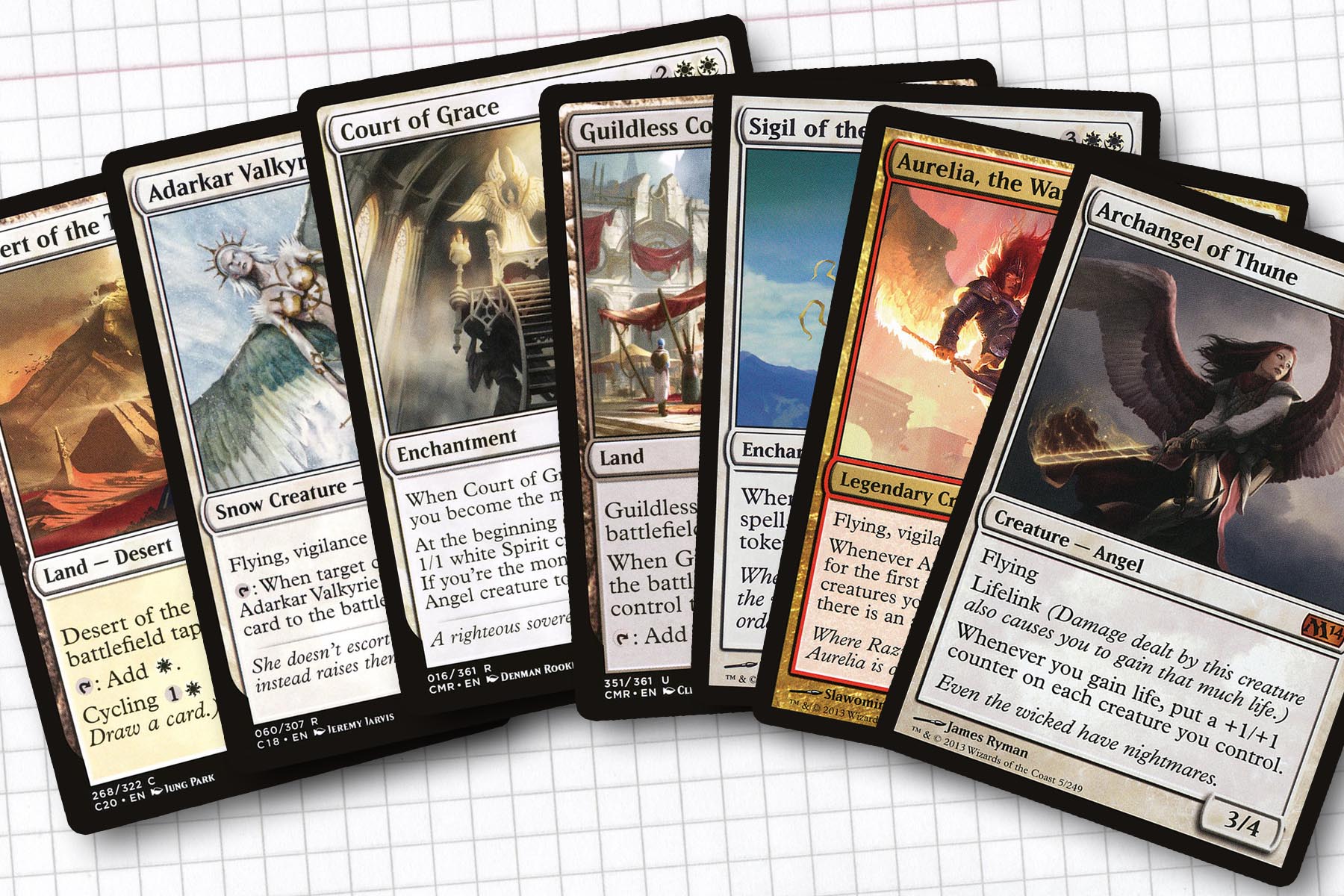
The Bad Opening Hand
I know one of my blindspots in Commander is that I will keep shaky opening hands. Usually, if I did well in the first game, I will unintentionally start my second game with a less sensible hand. The assumption is that I will be able to draw or color fix somewhere in the first few turns. The problem begins when all the sudden it’s turn six and that shaky three land hand has not found additional lands. This is the kind of accountability we need to apply to ourselves more often.
While it is completely fair to say that a game got out of hand and you never got a chance to play a fourth land, it’s more constructive to acknowledge that your opening hand with neither ramp or card draw was probably the root of your own issues. I think a subsection of this particular blind spot is your deck is not getting to do its thing. That can really suck, especially when you’re excited to play the new Giada, Font of Hope deck you just built. You even kept the opening hand with Divine Visitation and Legion Loyalty. But you never drew a fifth land.
I think it’s wise to know your deck well enough to be able to envision a constructive first three turns. Yuriko, the Tiger’s Shadow needs two lands and an unblockable one-drop. Akroma, Vision of Ixidor needs to see either a mana rock or Starnheim Aspirant. And Chatterfang, Squirrel General wants a piece of ramp and a token generator or they are shipping the hand. This small tweak to hand assessment can make a world of difference.
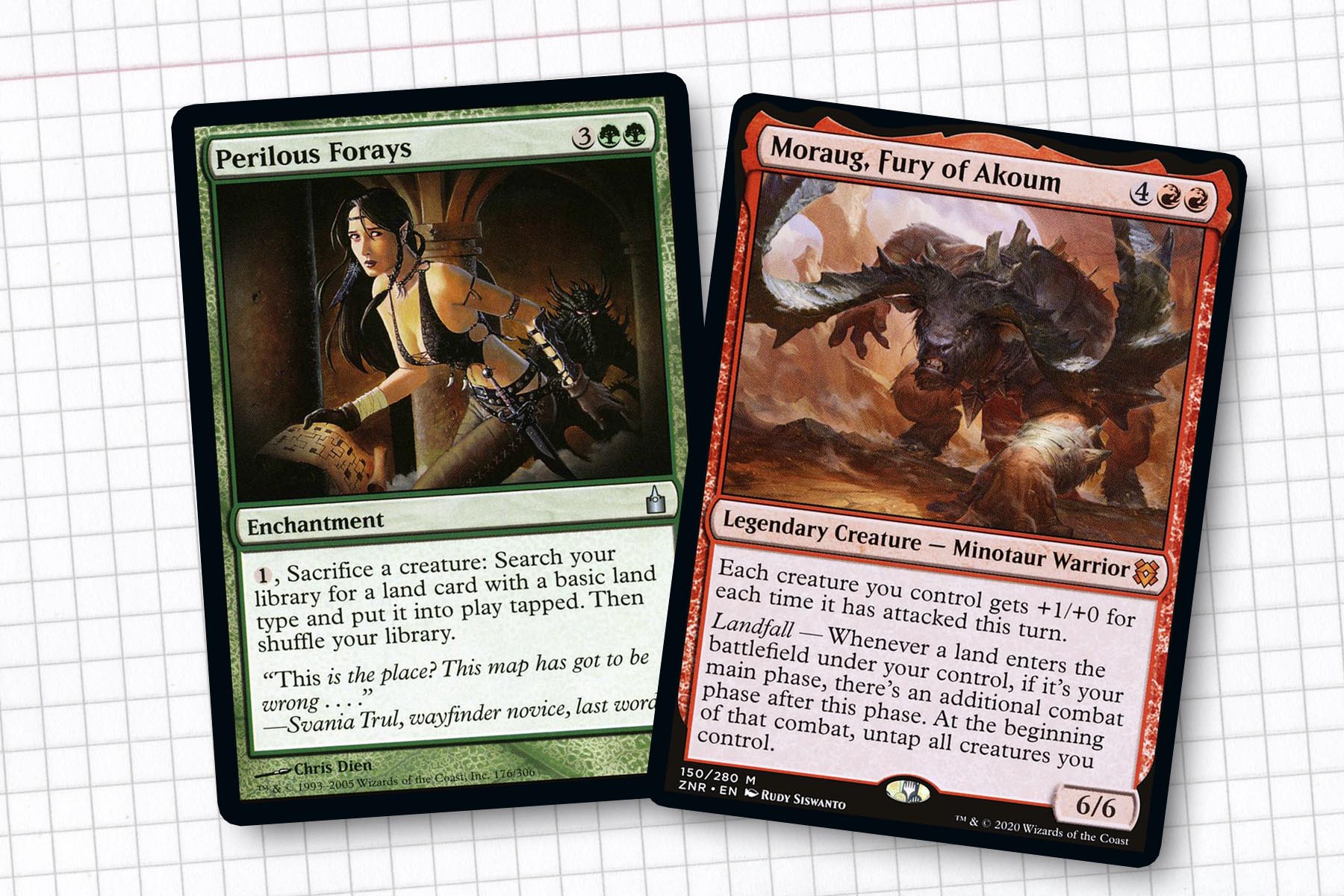
Poor Threat Assessment
Threat assessment is one of my favorite parts of the politics of Commander. As I’ve said before, I often shy away from being a threat until I need to be one. But I think that there is a lot that can be learned from understanding that even poor threat assessment can be avoided by simply trying to keep an open mind to the fact that any player in the game can go from being a lamb to a wolf in the matter of a turn—and vice versa.
Something I see quite often is players inability to recognize when a threat has emerged. Too often I myself will get tunnel visioned on the player to my left that took an early lead and not recognize that there is a combo being assembled to my right. It is, of course, unfair to expect any player to have the encyclopedic knowledge required to know the upper limits of what Minotaur Tribal can do with Cryptic Gateway. But by the same accord, if you show off the interaction between Moraug, Fury of Akoum and Perilous Forays, don’t be surprised if players start to undermine the combo in the next game.
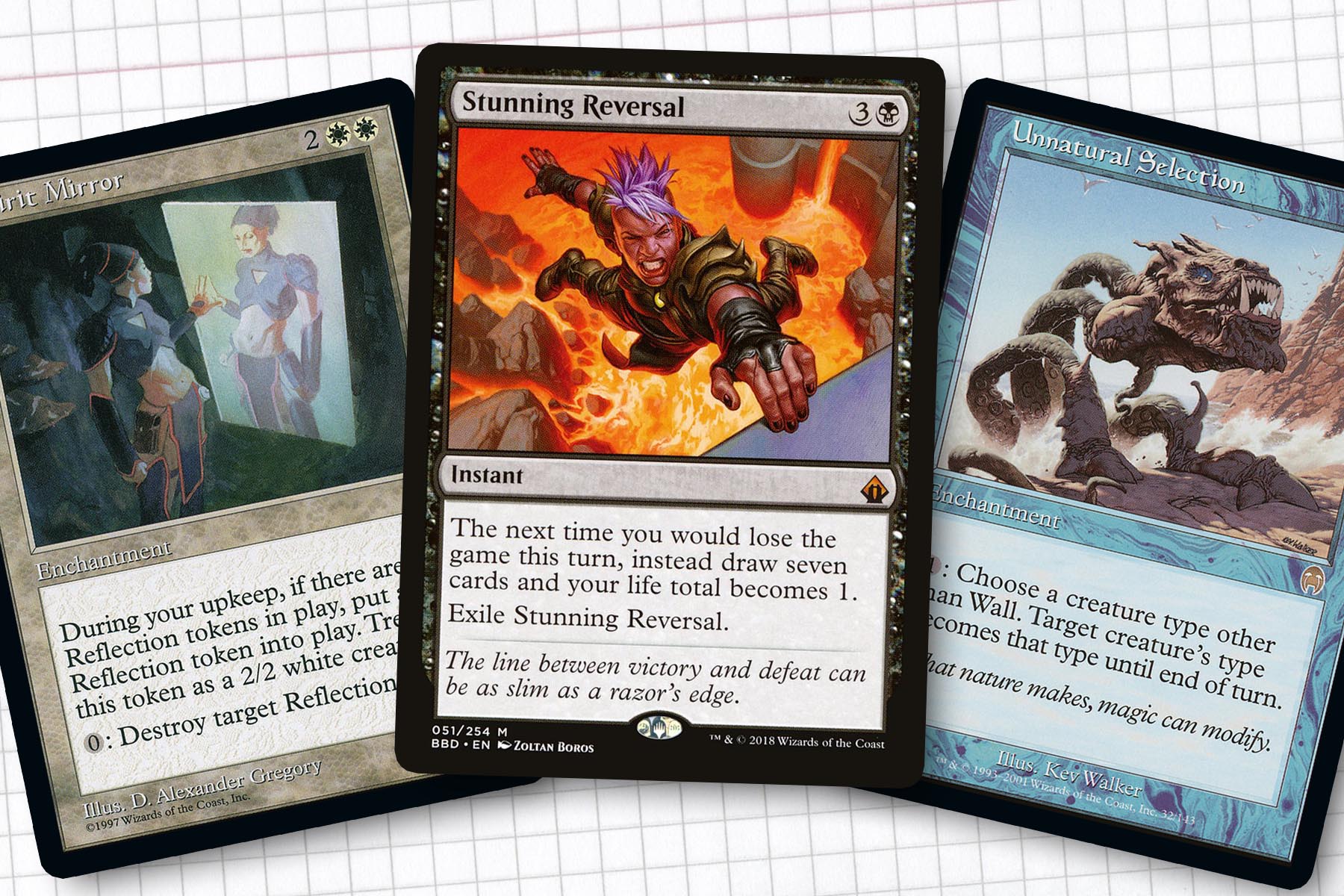
Making Them Have It
Winning and losing can be a dance on a knife’s edge, which is why it’s important to control your own destiny. I have spoken before about how powerful it can be when you allow your opponents to use their control spells and removal instead of you having to use your own. There can be a lot of advantage that comes from that, because you are subtly causing your opponent to run through the removal that they would have possibly used in the future against you. The inverse of this is when you get caught up in what your opponents could do, you might stop applying pressure, allowing them to decide the terms of the game.
Hidden information is an inherent part of Commander. We’ve all probably played with at least one player who will threaten removal if you attack them and actually have the goods when you call their bluff. The important thing is that if you are going to have agency in a game, sometimes you need to make them have it. It can be risky to over commit in the face of a full hand and a smart player, but it can pay off if no answers are to be had.
I know in the past, when my back is against the wall, I have made strategic decisions that do not make a lot of sense. I intentionally overcommitted with my Brudiclad, Telchor Engineer deck while Nevinyrral’s Disk was on the battlefield and it ended poorly for me. I did this because, at the time, I did not want to be beholden to my opponent’s agency by not presenting a threat. Besides, every turn the Disk wasn’t used was another turn I would sit on my hands.
Similarly, in the face of Divine Reckoning, I once kept Greven, Predator Captain over an entire battlefield of more viable threats. I had an Avenging Huntbonder in my hand and knew that if I drew a haste enabler, I could take out the biggest threat at the time while they only had one blocker. That gamble paid off when I drew into Goro-Goro, Disciple of Ryusei, though I think I still lost that game.
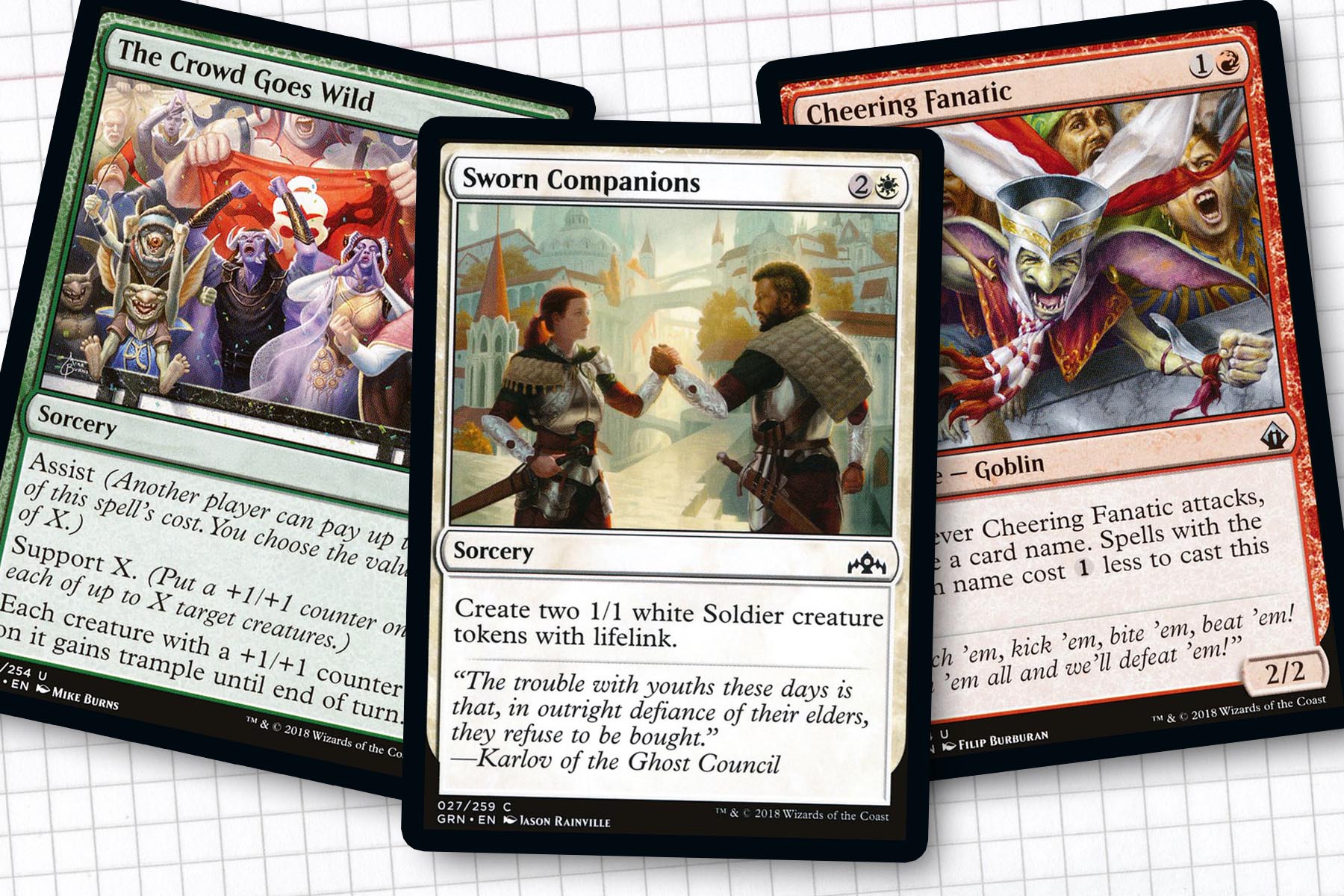
Sportsmanship
Lastly, it really goes without saying, but I cannot stress how important being a good sport can be when it comes to winning or losing a game of Commander. At the end of the day it is a game and while winning is certainly preferred, you need to be able to win and lose with grace.
I’ve spoken before about how Commander leaves a lot of room for sarcasm and playfulness, but how it is not healthy to become irritated when Player A does something like casting Mana Drain against your spell that was intended to take out Player B. These emotions can be hard to wrangle, because they come from your own investment and agency within the game. But letting that carry over into your next turn or even game does far more harm than good. This is of course, where talking through the dishonor cast upon you by your fellow player can be helpful in letting them know that it bothered you—especially because they may not realize how hard it impacted you—and hopefully allow you to constructively move forward. In the end, always try to be empathic and a good sport.
Losing is by no means a fun experience, but I hope that by laying out some of my own flaws it has helped my readers to acknowledge some of their shortcomings and foster a community of growth. Most games are going to result in a loss, because this isn’t a format where you should be expecting to win 50% of the time. Being able to circumvent a poor experience by playing your best, starting with a good opening hand, and keeping a sense of good sportsmanship can do wonders to increase the quality of games. Until next time, thanks for reading.
Ryan Sainio is a Graphic Designer who writes about EDH and the EDH community. He has been playing Magic: the Gathering since 7th Edition in 2002 and values flavorful and fun gameplay over competitively optimized decks.

